
Darren Incorvaia is a writer and comedian based in Chicago. His writing has also appeared in Scientific American, Discover Magazine, and Reductress. He has a Ph.D. in ecology, evolution, and behavior from Michigan State University. His favorite animal is all of them.

Trustworthy journalism comes at a price.
Scientists and journalists share a core belief in questioning, observing and verifying to reach the truth. Science News reports on crucial research and discovery across science disciplines. We need your financial support to make it happen – every contribution makes a difference.
All Stories by Darren Incorvaia
-
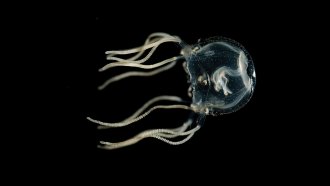 Animals
AnimalsThese are our favorite animal stories of 2023
Spiders that make prey walk the plank, self-aware fish and a pouty T. rex are among the critters that enchanted the Science News staff.
-
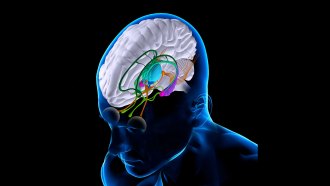 Neuroscience
NeuroscienceElectrical brain implants may help patients with severe brain injuries
After deep brain stimulation, five patients with severe brain injuries improved their scores on a test of cognitive function.
-
 Animals
AnimalsOne mountain in Brazil is home to a surprising number of these parasitic wasps
Darwin wasps were thought to prefer temperate areas. But researchers scoured a mountain in the Brazilian tropics and found nearly a hundred species.
-
 Animals
AnimalsThese bats are the only mammals known to mate more like birds
Male serotine bats have penises too large for penetration. To mate, the animals rub their genitals against each other, somewhat like birds’ cloacal kiss.
-
 Plants
PlantsOn some Australian islands, sea level rise may be helping mangroves thrive
Rising seas usually spell trouble for mangroves. But the first survey of the Howick Islands in 50 years finds that mangroves there have expanded a lot.
-
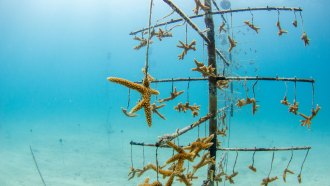 Animals
AnimalsFake fog, ‘re-skinning’ and ‘sea-weeding’ could help coral reefs survive
Coral reefs are in global peril, but scientists around the world are working hard to find ways to help them survive the Anthropocene.
-
 Life
LifeHuman cancer cells might slurp up bacteria-killing viruses for energy
In the lab, human cancer cells show signs of cell growth after ingesting bacteria-killing viruses, a hint our cells might use bacteriophages as fuel.
-
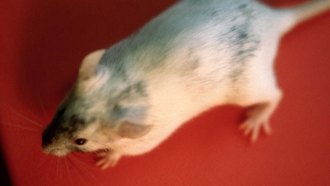 Genetics
GeneticsThese 8 GMOs tell a brief history of genetic modification
Since the first genetically modified organism 50 years ago, GMOs have brought us disease-resistant crops, new drugs and more.
-
 Animals
AnimalsHow sea anemones living on deep-sea hydrothermal vents avoid metal poisoning
The anemone Alvinactis idsseensis dominates its toxic environment thanks to an unusual number of genes geared toward protecting cells from heavy metals.
-
 Animals
AnimalsScientists debunked a long-standing cicada myth by analyzing their guts
The lack of obvious chewing mouthparts may have made casual observers think that adult cicadas don’t need to feed. But that’s not the case.
-
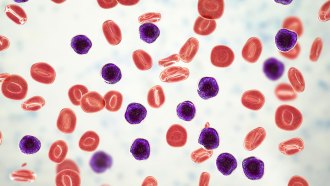 Health & Medicine
Health & MedicineA catalog of all human cells reveals a mathematical pattern
Smaller cells occur in larger numbers in the human body, and cells of different size classes contribute equally to our overall mass.
-

Birds with more complex vocal skills are better problem-solvers
Evidence for a relationship between bird vocal learning and cognitive prowess has been mixed. Now, a massive new study confirms they are linked.